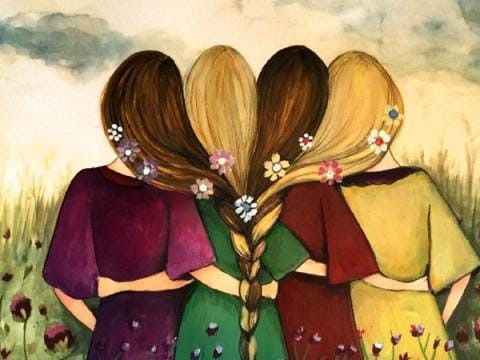Vetrnaetr
- Oct 10, 2025
- 3 min read

A son is better, though he be late born, And his father to death hath fared; Memory Stones seldom stand by the road Save when kinsman honors kin — Havamal, stanza 72
In honour of this month’s holy tide, Vetranaetr, I’d like to speak about the importance of ancestor worship and what that means to us as Ásatrúar. I chose this particular stanza from the Sayings of the High One to illustrate my point, and also because in just four lines, it tells quite the story.
To my eye, there is so much between the lines here, so much to ‘unpack,’ to use more modern language. We have a son that is born after his father has died, which on the face of it, is a tragedy that changes the lives of that family forever. The breadwinner is gone, the son will grow up without his father, and the wife/mother must face the stark reality of going on without her husband. Much like the transition from the warm, hopeful days of summer to the cold, bleak days of winter, the situation has gotten grim.
These are the same feelings that we all have when life throws tragedy and heartbreak at us, no matter the circumstance or severity of the problem. Many of us find ourselves off-kilter and unable to react with calm and clarity. Emotions are very powerful things, but they are natural and unavoidable. They also delay or prevent us from making good choices and doing the right thing regarding the situation at hand, for those around us and ourselves. So the question is, what do we do now?
The answer is that we turn inward to our family and our Folk. We don’t shut ourselves off, we don’t pretend the bad stuff isn’t happening. We do what our ancestors did without hesitation and turn to the people who have a vested interest in our well being and happiness. At this time of the year, that is tough for a lot of folks for a lot of reasons, it’s important to remember this. It is important because we must carry on. Our families, Our Folk, Our Church…all of them must continue.

Which brings us back to the second half of this stanza. Yes, his father is gone, it is a tragedy, and he must move on with his life. That does not mean that he has to forget or should fail to remember his father’s life and deeds. Those ‘memory stones’ are raised to keep those memories alive in those who raise them and to serve as a testament to all who see them that the person honoured by that stone mattered. He mattered to his wife and son, and he mattered to his Folk. This is the foundation upon which ancestor worship is built. They matter to us; no matter the distance in time or location, we are here because of them. All that we are, in the larger sense, we owe to their lives and their deeds. And now that they are beyond the veil, this makes them worthy of reverence and adoration.
This is the time of our year that we give special attention to that reverence and adoration of our forebears. We acknowledge their passing, tell the tales of their lives and deeds, and we speak their names. We are in essence raising and maintaining our own memory stones, so that those that strove mightily upon the same ‘Middle Enclosure’ as us will not be forgotten. We must also not forget that during the darker times of the year and in our lives, they remind us that we cannot do this alone.
This Vetrnaetr, as the world gets darker and colder, go to your altar, go to your Hof. Remember your ancestors. And when things get tough for you or the season gets you down, turn inward to your Folk.

Goði Bodi Mayo
~ From The Runestone, October 2025 ~



